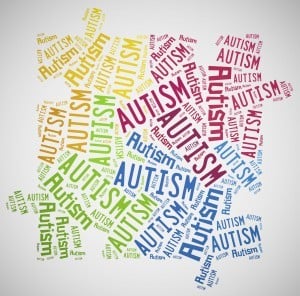 You may have heard a lot about NLP already or did your own reading on it, and it does truly have great results. (more…)
You may have heard a lot about NLP already or did your own reading on it, and it does truly have great results. (more…)
I wrote this article to help parents better understand child & adolescent counseling and the importance of setting limits early to prevent future problems. (more…)
Many children struggle at school, either academically, socially, or both. These types of difficulties can arise suddenly or gradually worsen over time. (more…)
 The first thing parents can do – to help their children and adolescents better manage negative behaviors – is to change their own behaviors. Here are my top 10 suggestions for parents to consider integrating into their family: (more…)
The first thing parents can do – to help their children and adolescents better manage negative behaviors – is to change their own behaviors. Here are my top 10 suggestions for parents to consider integrating into their family: (more…)
 There are many circumstances where the marital relationship impacts a child’s development including divorce, separation, marital discord and the like. Helping children navigate typical behavior problems is challenging in the best of circumstances. It becomes a major family issue when behavior issues surround marital discord. (more…)
There are many circumstances where the marital relationship impacts a child’s development including divorce, separation, marital discord and the like. Helping children navigate typical behavior problems is challenging in the best of circumstances. It becomes a major family issue when behavior issues surround marital discord. (more…)
 In my clinical work with children & adolescents, I often employ a form of psychotherapy called Cognitive Behavioral Therapy (CBT), (more…)
In my clinical work with children & adolescents, I often employ a form of psychotherapy called Cognitive Behavioral Therapy (CBT), (more…)
 Executive functioning refers to those skills that allow us to anticipate, plan, organize, set goals, carry out goals, and monitor one’s behavior according to changing demands. (more…)
Executive functioning refers to those skills that allow us to anticipate, plan, organize, set goals, carry out goals, and monitor one’s behavior according to changing demands. (more…)
 Toileting problems are extremely common in young children and will often resolve without intervention. However, such issues can also signify larger, more complicated indicators of distress. (more…)
Toileting problems are extremely common in young children and will often resolve without intervention. However, such issues can also signify larger, more complicated indicators of distress. (more…)
 Whether you believe Asperger’s Syndrome (AS) and High Functioning Autism (HFA) are separate and distinct disorders or just variants along the same spectrum, the treatment for either diagnosis is virtually the same. I work with a number of children and adolescents with Asperger’s or HFA in my practice, and recently gave Grand Rounds at The Center for Attention & Learning Disorders at Lenox Hill Hospital / NorthShore LIJ and NYU Woodhull Medical Center in Brooklyn, NY on the Clinical Practice of Asperger’s Syndrome in Children & Adolescents. (more…)
Whether you believe Asperger’s Syndrome (AS) and High Functioning Autism (HFA) are separate and distinct disorders or just variants along the same spectrum, the treatment for either diagnosis is virtually the same. I work with a number of children and adolescents with Asperger’s or HFA in my practice, and recently gave Grand Rounds at The Center for Attention & Learning Disorders at Lenox Hill Hospital / NorthShore LIJ and NYU Woodhull Medical Center in Brooklyn, NY on the Clinical Practice of Asperger’s Syndrome in Children & Adolescents. (more…)



